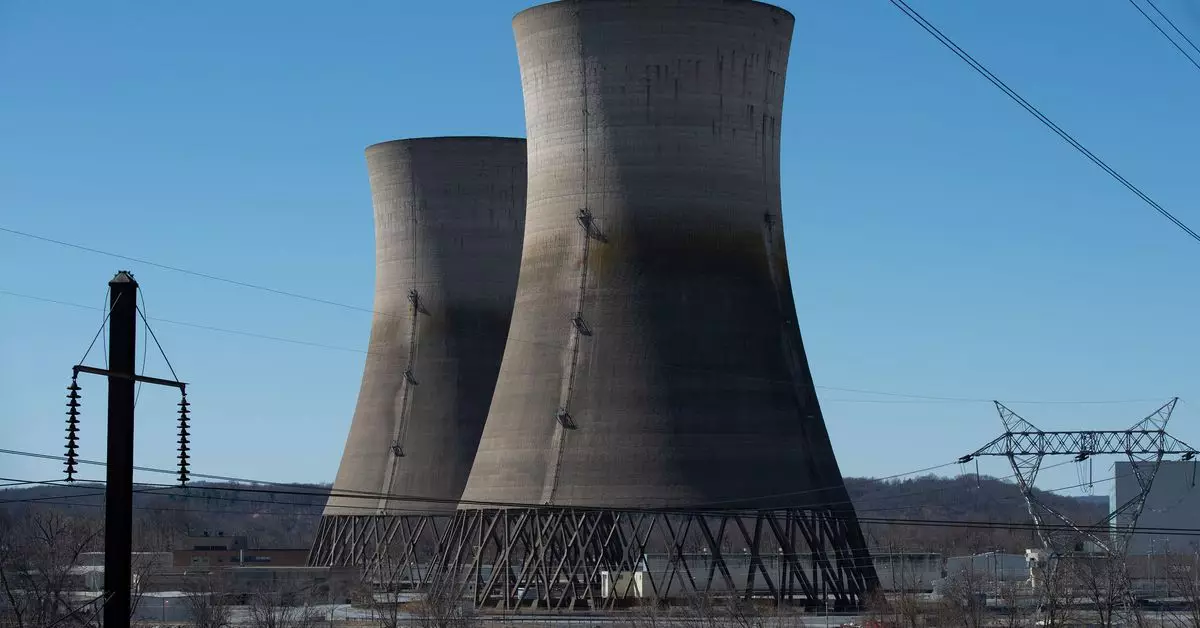In an ambitious bid to fuel its expanding AI initiatives, Microsoft has recently signed a noteworthy agreement to rejuvenate the dormant Three Mile Island nuclear power plant. This monumental step is more than a mere business decision; it symbolizes a potentially transformative shift in how technology giants source their energy, especially amid growing concerns regarding climate change and the energy demands of modern data centers.
The deal, announced by Constellation, the proprietor of the Three Mile Island facility, enables Microsoft to secure exclusive rights to the plant’s entire energy output as it gears up for its data center operations. If the proposal clears the regulatory maze, the plant could return to operation by the year 2028. Originally decommissioned in 2019 for economic reasons, the site has an interesting history—it includes the infamous reactor involved in the horrifying 1979 incident, marking it as a site of significant operational and cultural context in the realm of U.S. nuclear energy.
With the potential to generate a staggering 837 megawatts of electricity, the plant can provide enough energy to power over 800,000 homes, underscoring the magnitude of electricity required for Microsoft’s expansive data-centric operations and its foray into AI development. This project will be rebranded as the Crane Clean Energy Center, a tribute to Chris Crane, the late CEO of Exelon, signaling a commitment to the evolution of energy generation.
Microsoft has set audacious climate targets, aiming to achieve carbon negativity by 2030. However, the company has grappled with increasing greenhouse gas emissions due to the ramp-up of its AI initiatives. The collaboration with Constellation is expected to align with Microsoft’s goal of transitioning to clean energy sources by 2025, particularly as it plans expansions in regions like Chicago, Virginia, Pennsylvania, and Ohio. Bobby Hollis, Microsoft’s vice president of energy, noted that this agreement is a significant leap toward decarbonizing the energy grid, thus meeting broader environmental commitments.
While the necessity for clean energy is clear, the agreement raises complex discussions regarding the perception of nuclear energy in the broader narrative of climate solutions. Historically viewed as controversial due to safety concerns and waste management issues, the revival of sites like Three Mile Island could signal a changing attitude among tech leaders towards nuclear power’s role in sustainable energy.
Constellation’s commitment of $1.6 billion to modernize and recommission the plant indicates a serious investment in both infrastructure and the future of energy generation. However, this project is contingent on multiple approvals from the Nuclear Regulatory Commission, alongside necessary permits from various state and local authorities. This requirement underscores the intricate nature of nuclear energy projects in the United States, where public safety and regulatory compliance are paramount.
The potential reactivation of the plant aligns with emerging interest in small modular reactors (SMRs) as a solution for reliable, cleaner energy. Microsoft’s co-founder, Bill Gates, has long championed nuclear energy, advocating for its possible role in addressing the global climate crisis. The push for innovation in energy production reflects a growing acknowledgment that a diversified energy portfolio may be necessary to meet future demands sustainably.
Microsoft’s initiative to tap into nuclear energy highlights a pivotal moment in the intersection of technology and energy production. As the company navigates its ambitious sustainability goals while addressing the pressing energy needs of its AI-driven future, the decision to revive Three Mile Island could set a precedent for other tech giants. By blending cutting-edge technology with sustainable practices, Microsoft is not just reshaping its operational landscape; it is also advocating for a broader discourse around nuclear power’s re-emergence as a viable, clean energy source in the fight against climate change.


Leave a Reply